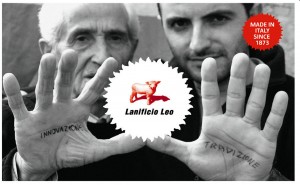
From Timpson to Warburtons, some of our most enduring brands and favourite products have been created by family firms. Their high profile bust-ups, incredible wealth and social conscience have guaranteed constant interest from academic scholars, policy-makers and the wider public.
We estimate that in the UK, family businesses are responsible for 40% of private sector jobs and 31% of tax revenue. They make up at least half of all firms in each UK region and the North West has the highest number of family businesses after London and the South East.
Despite their importance to our economy, there is limited understanding of how family businesses work. What are the key research areas associated with family businesses at Salford Business School?
Definition of a family business
With over 80 family business definitions to choose from, defining a family firm or a business can be a treacherous exercise. Co-preneurs (couples who have gone into business together), step-families, siblings, cousins and other family groups can form family businesses.
The family may own and manage the firm, or like the Disney family, have a stake in the family business, but no longer actively lead the organisation.
Researchers here at Salford Business School, are investigating the “familiness” of the family business: what are the unique characteristics that make family firms distinctive?
We are also investigating how regional policy affects family firms in the North West. Given that only 30% of family firms survive until the second generation and only 10% of family firms remain active into the third generation, how can local and national governments help family businesses to succeed?
Succession planning
Succession planning is hugely important for a family business. Longer lifespans mean that we are seeing more “beanstalk” family businesses, where three generations are involved in the family firm.
Family businesses are dynamic in nature; the business and the family are part of the same network and this can enable younger generations to learn from their elders. However, conflict can occur when social values differ between generations.

Capitalising on the skills of the younger generation to innovate and explore new markets is crucial for the long-term success of family firms.
For example, the Passport to Trade 2.0 project explored how organisations can use social media and understand international business etiquette in order to expand their international business in Europe.

The importance of Enterprise Cultural Heritage and how the knowledge of past generations can help in developing the identify of the business were also explored by the Passport to Trade 2.0 project.
In particular, free training material was devised as part of an international research team to help companies to learn about their
- Brand management
- Change management
- Intellectual property rights management and
- Enterprise Cultural Heritage assets of a firm:
Heritage Management Learning Module
Salford Business School and Family Business
Salford Business School is a popular choice for family businesses to send their second, or even third generation family members.
Our law, accounting, business and management courses as well as business information technology students have a world-class learning experience whilst at Salford Business School. Students graduate with skills which when applied to their family business, will ultimately help those businesses grow.
Final year undergraduate students on the BSc Business Information Technology and BSc Accounting and Finance courses are developing a Massive Open Online Course (MOOC) in aspects of family business. They aim to help other family businesses by sharing their expertise in social media, economics, technology and project planning.
What do you think?
Are you a family business? Do you think that business schools are teaching skills relevant for your business? Would you like to take part in our research? What do you think are the issues associated with family business?
I would love to hear from you – use the comments section below or get in touch with me – Udeni Salmon. I am a PhD student at Salford Business School researching family business and am looking for organisations who would be interested to take part in my study.